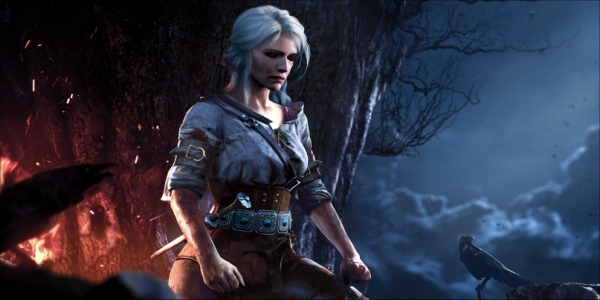The Witcher Developer Speaks Out On The Loot Box Controversy

The ongoing controversy involving loot boxes and the debate about whether or not they're considered gambling has raged on since November, and now more developers and publishers are starting to chime in as legislation approaches. CD Projeckt Red, the makers of The Witcher video game series, offered its two cents on the situation.
CD Projekt Red co-founder Marcin Iwinski was asked by PC Gamer about the loot box controversy and Iwinski stated...
Where we stand is quite simple and you could see it with all of our past releases---most recently The Witcher 3: Wild Hunt and GWENT. If you buy a full priced game, you should get a big, polished piece of content, which gives you many, many hours of fun gameplay...there's also free-to-play territory. Here we have GWENT, where you can buy card kegs and some vanity items. Again, the deal is simple---you can play the game for free and craft your desired card collection this way, or decide to spend money and get card kegs. The choice is yours, and the only thing you pay for is time and convenience.
It's a very even argument on the situation. Some people have tried extending the argument that if loot boxes are gambling then so are card packs in deckbuilding games like GWENT. One of the nuances of the conversation involving card packs is that, oftentimes, you can trade cards and there is an indication of what the general theme or motif of the card pack is about. For instance, some Pokemon card packs are themed around a certain type or a certain region. And for the physical cards they can be traded, so there's a transferable value to the cards so that not only do you get something for what you purchase but you can also transfer or trade those items if you so desire. There are mitigating factors to the risk involved.
This sometimes applies for games like GWENT or Hearthstone, where some cards can be traded or stored and sometimes what you get is what you're stuck with. Then again, some card packs are also available in themes, so even if the items themselves are random you have an idea of what cards you want/need from a certain category. But as mentioned, the game is also free-to-play, so there's no premium barrier to entry.
Things get a little trickier when the game has random loot in random loot boxes where you're looking for something very specific. In the case of games like Star Wars: Battlefront II all of the upgrades and unlockables were tucked away behind the loot boxes, and, originally, gamers would have been able to pay to unlock the boxes to attain certain higher level items. The designation of the loot boxes were random, and so it was one of those things where you're spending money in hopes of getting something you would find useful.
The idea was that the "fun" of Battlefront II would have been gated behind either lots of grinding that most gamers feel is a chore, or paying to unlock the good stuff using real money. What Iwinski is suggesting is that full priced games should be polished with content that justifies the price of entry without having to pay more to get to the fun parts.
Many gamers will likely agree that CD Projekt Red handled The Witcher 3's release and its subsequent DLC with class. So, it seems as if CD Projekt doesn't intend to wade into the loot box territory anytime soon for full priced games.
Your Daily Blend of Entertainment News
Staff Writer at CinemaBlend.

